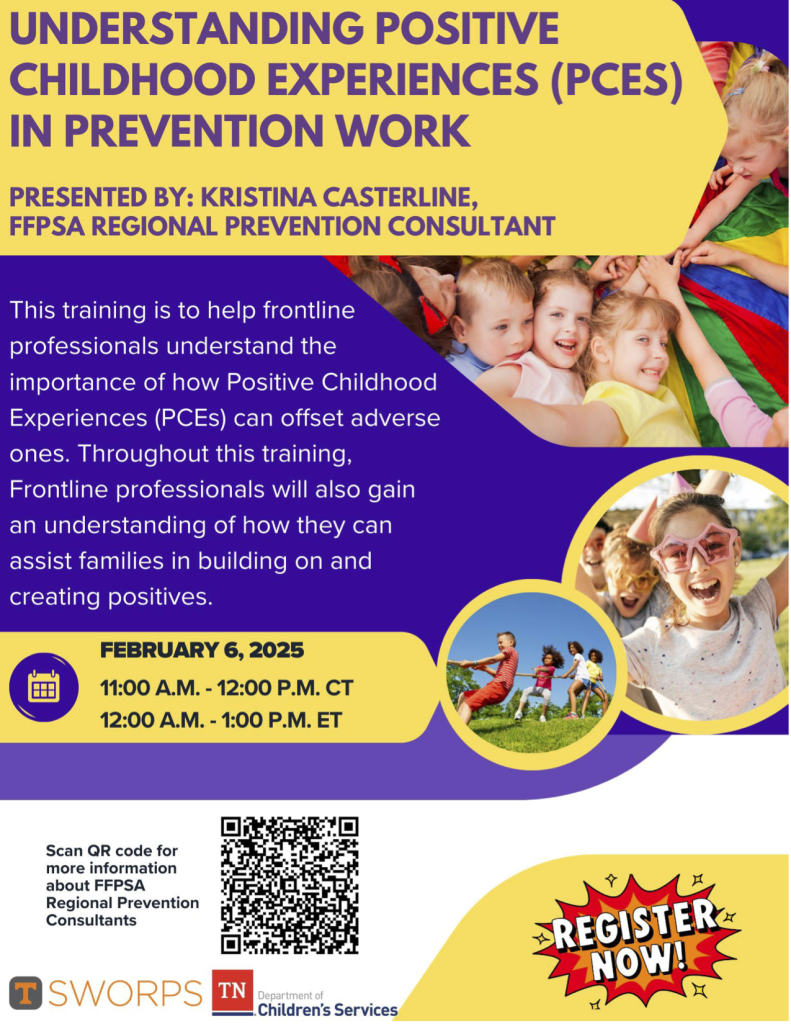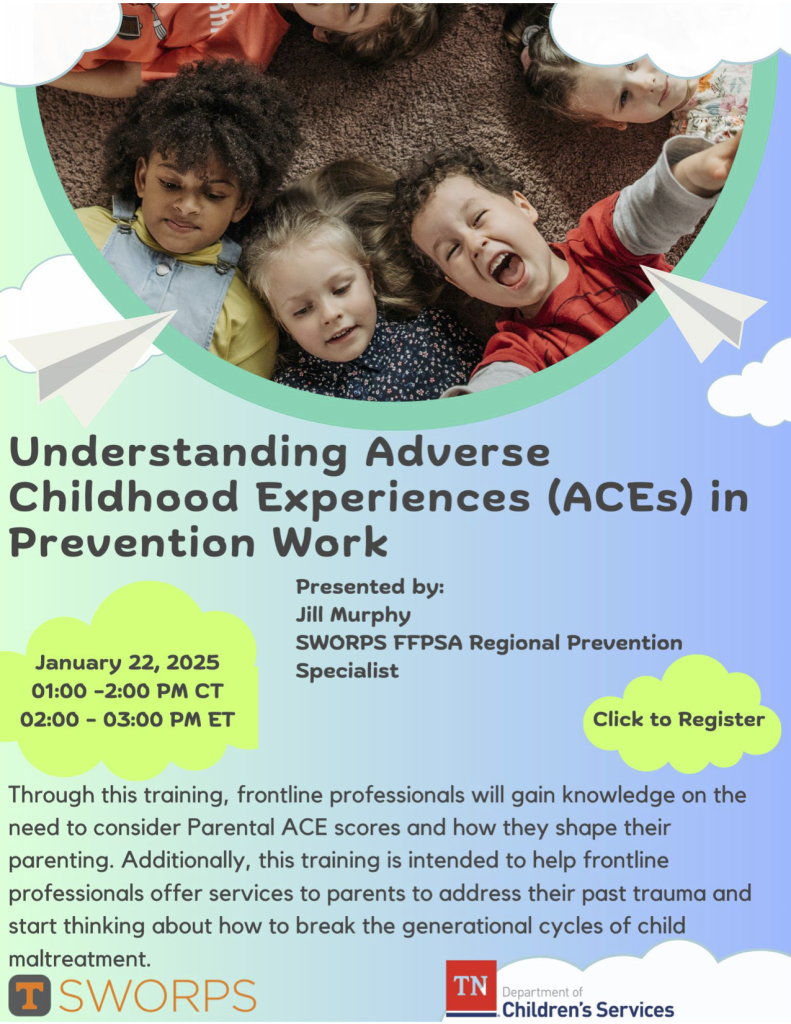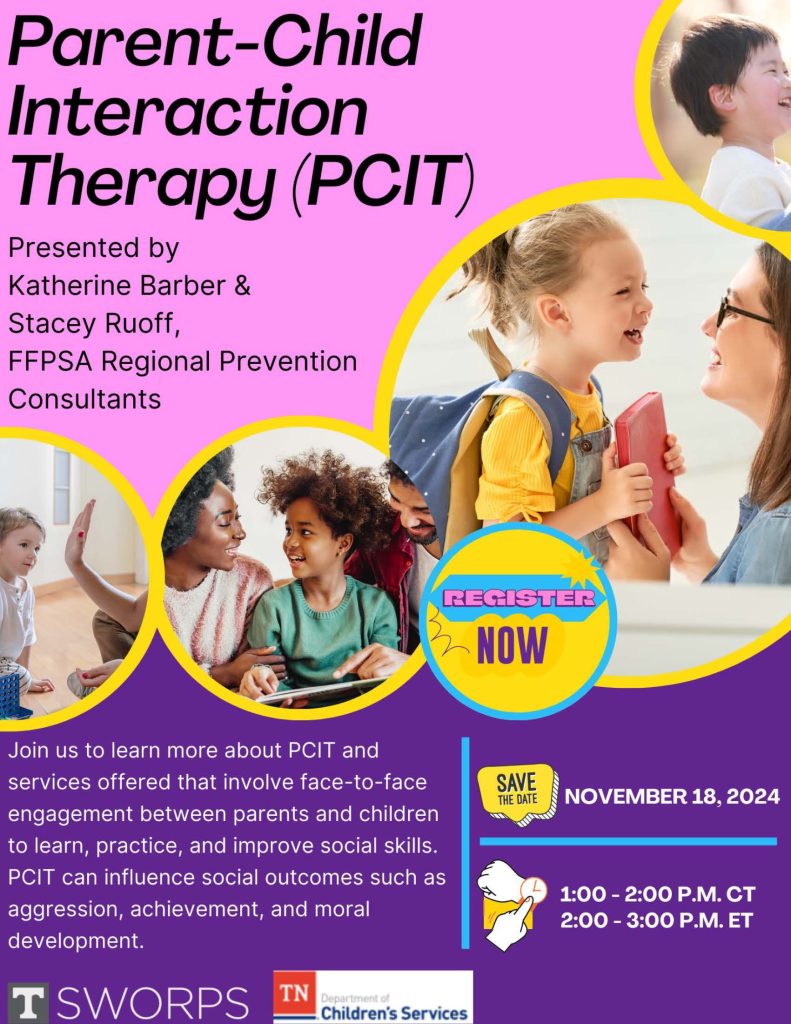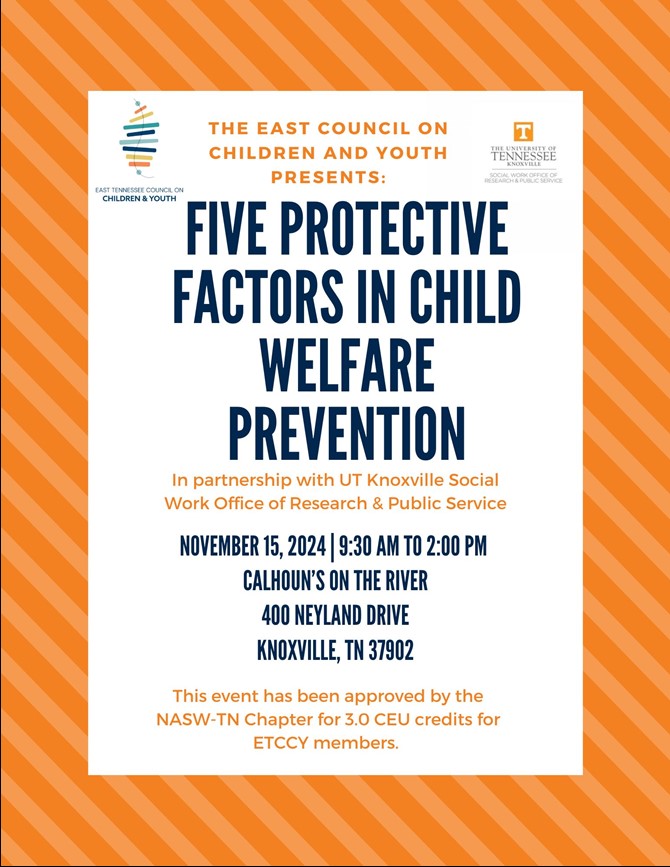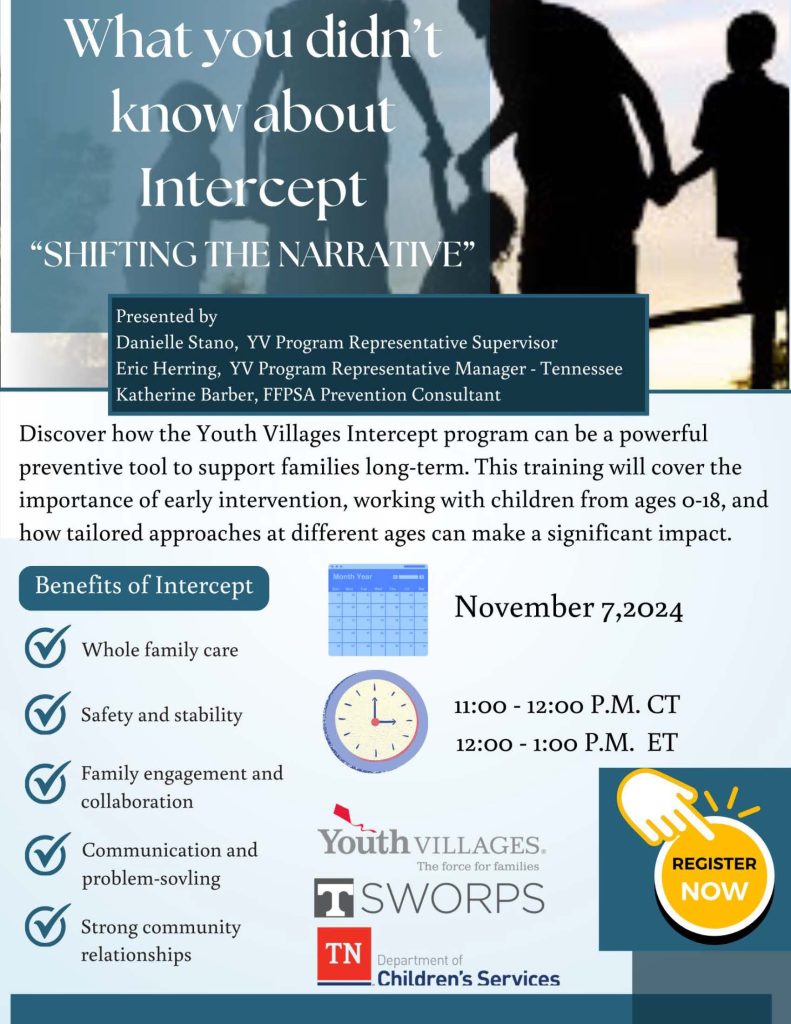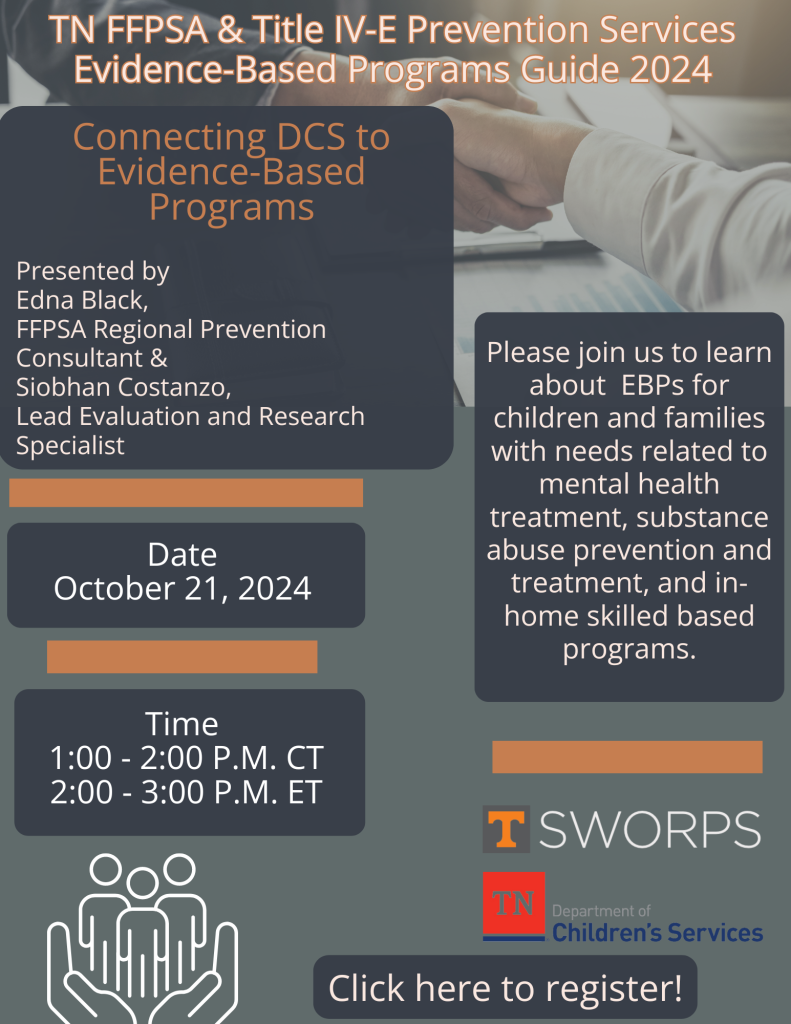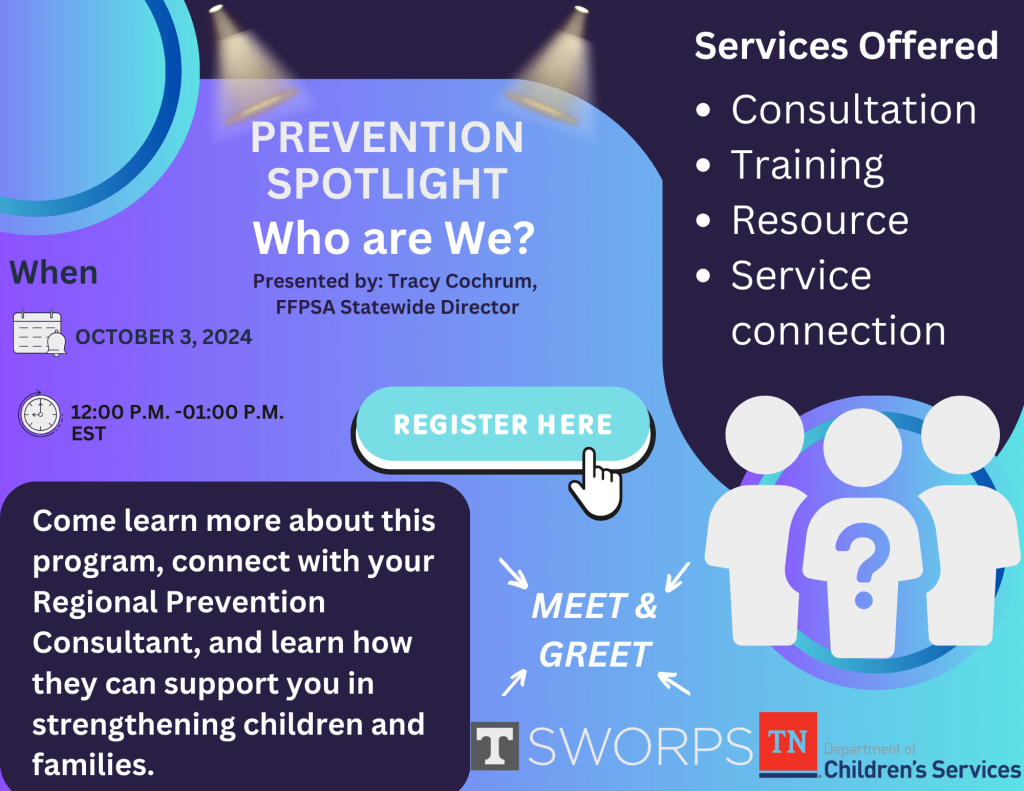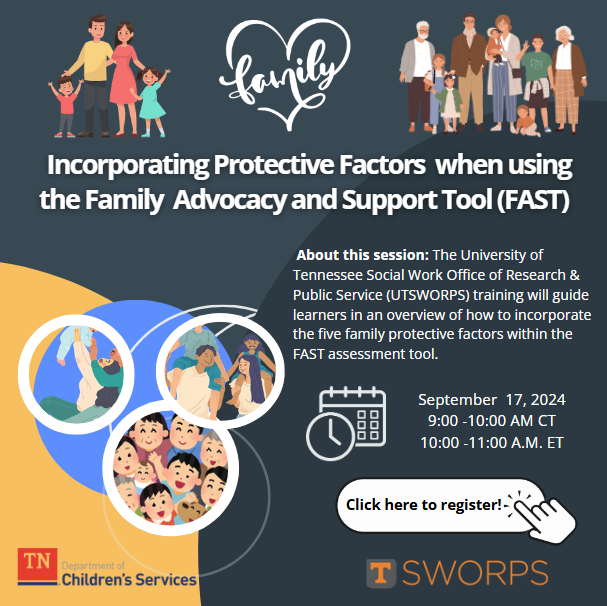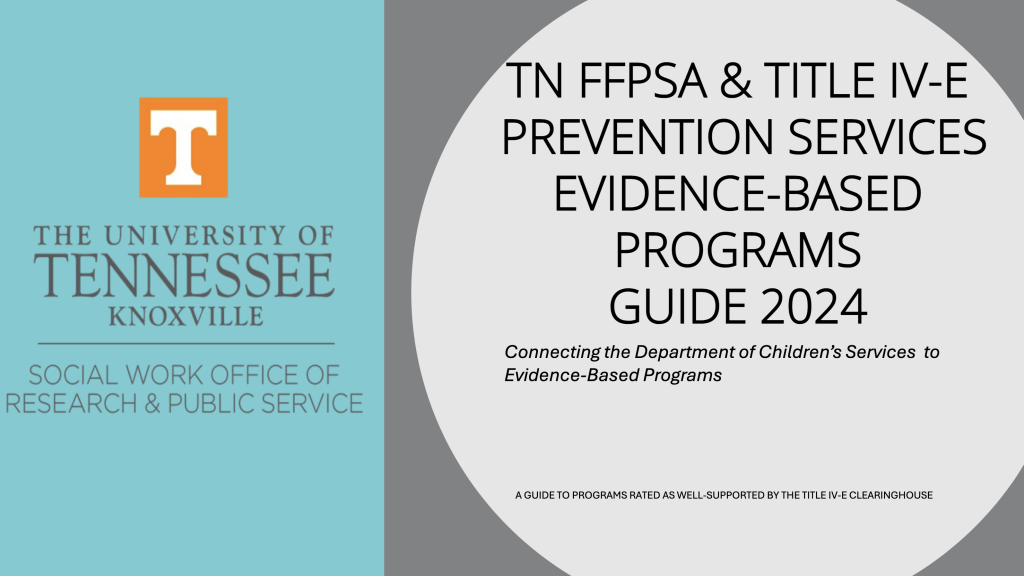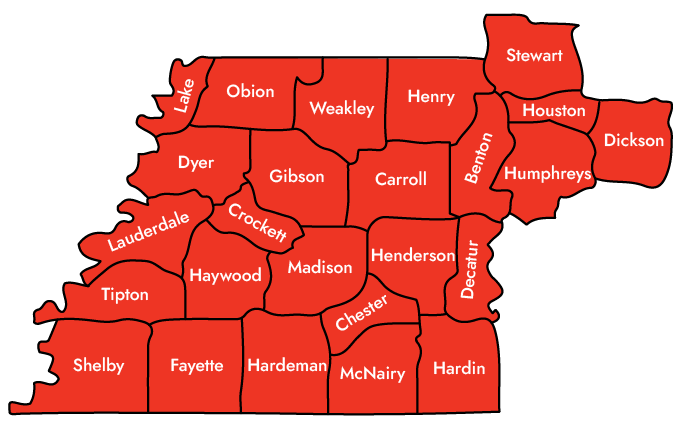FFPSA Regional Prevention Consultants
The Family First Prevention Services Act (FFPSA) is a major piece of legislation in the United States aimed at reforming the child welfare system, significantly altering the federal financing structure for child welfare programming to provide for a greater investment in prevention.
FFPSA provides the legislative and funding pathway for the transformation of child welfare systems by enabling them to:
- Reorient around prevention and family;
- Increase quality family-based placements for children and youth who enter foster care;
- Right-size congregate care to create effective continuum to meet needs.
High Quality Prevention Practices with Families
Preventing foster care placement through evidence-based prevention services and collaboration with local child welfare practitioners, community organizations, and families.
Regional Capacity Building
Building capacity of local systems to deliver effective prevention services and support families at risk of child maltreatment.
Promoting collaboration and coordination among various stakeholders within the child welfare system and community.
Monitoring and Evaluation
Outcomes
Family-Level Outcomes
- Reduced risk of child maltreatment and foster care placement: By providing families with access to appropriate prevention services and support, the model can help address underlying risk factors and strengthen family functioning, ultimately decreasing the likelihood of child maltreatment and out-of-home placements.
- Improved child well-being and development: Access to evidence-based prevention services can promote positive parenting practices, enhance parent-child relationships, and address children’s social-emotional needs, leading to improved child well-being and development.
- Increased family resilience and self-sufficiency: Through skill-building training, resource connection, and advocacy, families can become more resilient in managing challenges, leading to greater self-sufficiency and confidence in caring for their children.
System-Level Outcomes
- Enhanced capacity of the region: Collaboration and technical assistance from regional prevention consultants can equip the region with the knowledge, skills, and resources to effectively deliver and manage their prevention program.
- Improved coordination and collaboration: The model fosters partnerships between DCS, community organizations, and families, leading to a more coordinated and efficient child welfare system with less siloed approaches.
- Data-driven decision-making: Data analysis and evaluation of prevention programs inform policy and practice development, ensuring resources are utilized effectively and targeted towards interventions with the highest impact.
- Reduced costs to the child welfare system: Preventing foster care placements and supporting families saves the child welfare system significant financial resources, allowing for reinvestment in prevention initiatives and other needed services.
FFPSA Training
Recorded Training
Playlist
Parent-Child Interaction Therapy Service Providers by Region
Select a region below to view a list of therapy service providers for that area.
Team Members
Kristina Casterline
- Davidson Region
- kriscas@utk.edu
- 629-292-6896
Molly Cornwell
- Upper Cumberland Region
- mcornwel@utk.edu
- 931-357-3888
Caitlin Reed-Bowers
- Northeast Region
- creed30@vols.utk.edu
- 865-722-3595
Vanessa Warren
- Mid Cumberland Region
- vwarren3@utk.edu
- 629-292-1756
Recent News

Strengthening Tennessee Families Conference
We are excited to announce our upcoming conference and extend an invitation to submit proposals that shed light on preventing child maltreatment and promoting the well-being of children and families.

2024 Child Welfare Provider Fair Details Announced
Meet new people, discover community services, find help, stay informed and make connections at the 2024 Child Welfare Provider Fair!














